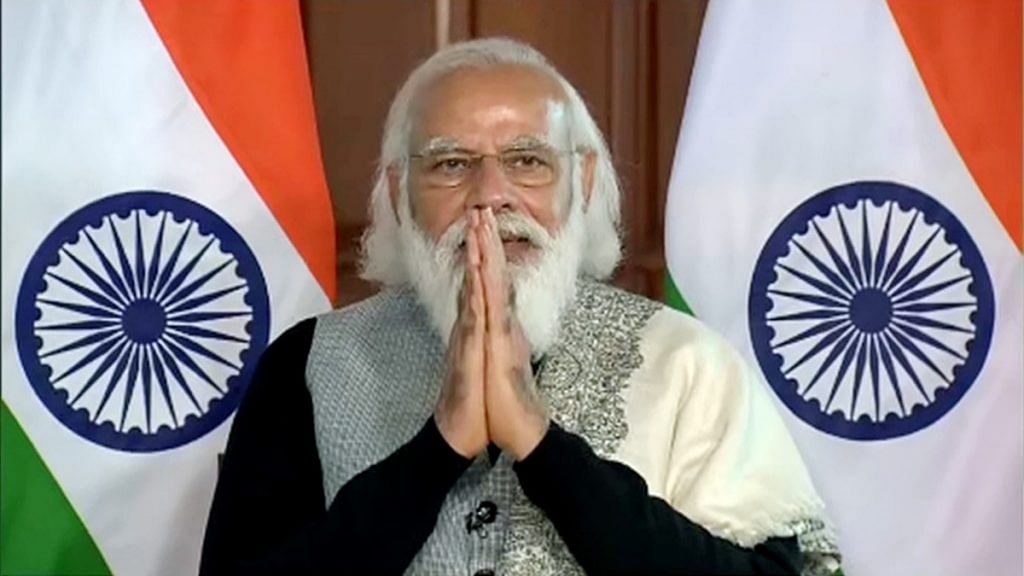New Delhi: Prime Minister Narendra Modi Friday announced the rollout of Rs 18,000 crore under the Pradhan Mantri Kisan Samman Nidhi scheme to nine crore farmers. The money will reach the farmers as a direct benefit transfer to their bank accounts.
This means every farming family in the country will get Rs 500 a month or Rs 6,000 in a year.
In episode 648 of ‘Cut The Clutter’, ThePrint’s Editor-in-Chief Shekhar Gupta called the prime minister’s address “a combination of conciliatory, aggressive, and a bit of electioneering”, amid an ongoing farmers’ agitation against the three contentious agriculture laws.
Gupta said the PM was aggressive towards the Opposition by calling out West Bengal, because the state government has insisted that the funds be sent separately in its account. The PM had said that as many as 70,000 farmers in Bengal will miss out on the benefits of the scheme.
Gupta said Modi was conciliatory with the farmers because in his speech he had pitched the three agricultural laws as reforms that will benefit them.
Also read: How deaths of Karima Baloch and Sajid Hussain indicate resurgence of Cold War dirty tricks
Why agriculture reforms are required
Giving several examples of the problems and risks that farmers face, Gupta also said that agricultural reforms are the need of the hour, but added that they “cannot be forced upon them (farmers)”.
He detailed some of the ongoing situations. First, when prices of tomatoes in Maharashtra had dropped to Rs 1 per kilo; second, the price rise of onions during September-October; and third, the government having to pay a subsidy of Rs 3,500 crore to export sugar.
Agreeing with the PMs move of providing direct benefit transfer and supporting subsidy, Gupta said this was the first step in which farmers can be helped.
Gupta stated that subsidy was required because agriculture is a low profit and low yield, but an important business. He also said that agriculture was a facade for hiding enormous underemployment in the country. Too many people are employed in agriculture, producing too little value, he added. And one way to help this sector was to make direct benefit transfer of agricultural subsidy, restore input and produce farm gate prices somewhere close to markets.
Gupta also talked about former agricultural secretary Siraj Hussain’s article on the need for Punjab and Haryana farmers to diversify from wheat and rice cycles. Gupta insisted on the need to shift their cultivation patterns to less water intensive crops. The cultivation of paddy is water intensive and the amount produced is much more than the requirement.
Giving a similar reference to the onion cycle, Gupta said, “India does not have the best storage facility. When the farmers start selling their harvest of onions, glut creates more supply over demand leading to falling prices, troubling the farmers. During the sowing season, the country has to import onions due to lack of storage facilities. The high prices affect consumers and the media pays attention to the city folk creating a fuss but not much attention is given to the plight of the farmer.”
Sugar production is another water-intensive technique which farmers in Maharashtra have been undertaking. The process involves diverting groundwater towards a water intensive crop in a dry state, pushing villages further towards drought. This becomes problematic because most of the sugar mills are owned by politicians. Gupta referred to the matter as the “elephant in the room, which no one wants to talk about”.
Also read: Nepal’s latest crisis and its unstable political history with 49 PMs in 58 years
